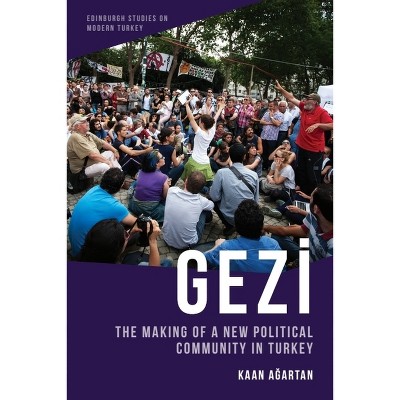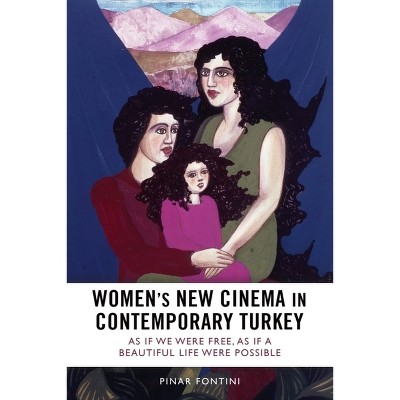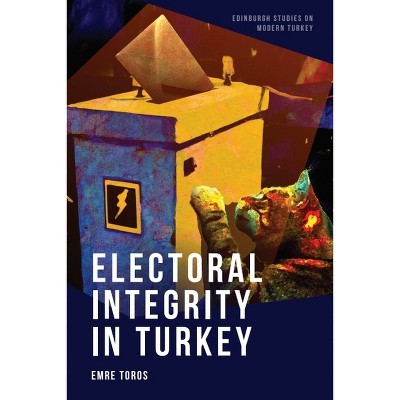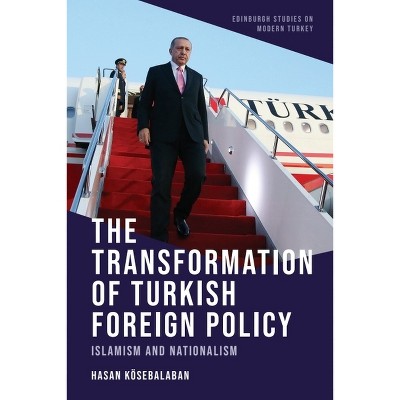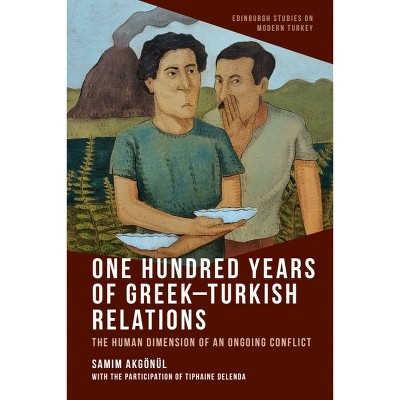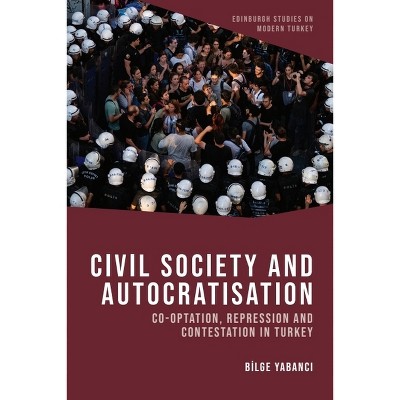Sponsored

Memory, Patriarchy and Economy in Turkey - (Edinburgh Studies on Modern Turkey) by Meral Uğ & ur-Çı & nar (Paperback)
Pre-order
Sponsored
About this item
Highlights
- Through the narrative analysis of texts, ranging from political speeches to museum documents as well as graffiti and posters from protests, this book tries to shed light on contemporary Turkish politics as well as offering a glance into how narratives operate in the political realm.
- Author(s): Meral Uğ & ur-Çı & nar
- 208 Pages
- Literary Criticism, Subjects & Themes
- Series Name: Edinburgh Studies on Modern Turkey
Description
About the Book
This book brings a dynamic approach to Turkish politics by showing how political struggles operate via narratives and how ideas, institutions and narratives interact.
Book Synopsis
Through the narrative analysis of texts, ranging from political speeches to museum documents as well as graffiti and posters from protests, this book tries to shed light on contemporary Turkish politics as well as offering a glance into how narratives operate in the political realm. Following the journey of political narratives and counternarratives in the Turkish context facilitates the mapping of the cultural terrain while being attentive to power, resistance and dynamism.
By analyzing narratives of collective memory, patriarchy and economic development, all of which are deeply embedded culturally, it traces the ways in which narratives shape politics. The chapters deal with issues such as the role historical narratives play in hegemonic power struggles among political parties, the narrative resources upon which populist regimes draw, how economic development narratives affect prospects of and threats against democratic practices and institutions, and how protesters subvert dominant notions of citizenship through counternarratives.
Review Quotes
Meral Uğur-Çınar is a leader among the political scientists exploring how narratives are central to struggles for power and to governance. Here she brilliantly illuminates the crucial roles that competing narratives play in issues of national identity, economic justice and gender hierarchies, in Turkey and much of the modern world.
--Rogers M. Smith, University of PennsylvaniaFascinating and well written [...] Uğur-C̦inar's explanations of slogans and graffiti from [the 2013 Gezi Park] protests are an invaluable resource for understanding Turkish sentiment and the Populism espoused by the Turkish AKP government.--V. Clement, Central Asian Insights "CHOICE"
Shipping details
Return details
Trending Book Pre-Orders






